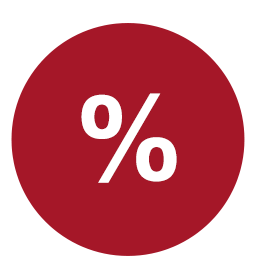Brokerage fees, stamp duties and stock exchange fees – anyone who trades on the stock exchange will no doubt have already heard these three terms. After all, these fees must be paid virtually every time securities are bought or sold.
- Stamp duty is a tax levied by the Swiss tax authorities on almost every trade on the Swiss financial center. The amount is set by the Federal Tax Administration and indicated as a percentage of the sum generated by the securities trade. The amount of stamp duty depends on whether the stock exchange is in Switzerland or abroad and whether the trade involves a Swiss or a foreign security.
- Stock exchange fees are paid to the stock exchange for making the trade possible in the first place.
- In addition, brokerage fees must be paid to the bank responsible for executing the trade. Their amount varies from one provider to another, and is based principally on the order volume, price and stock exchange concerned.
Depending on the bank, other fees may also be due, for instance for custody account management. Our article “Get to grips with the minefield of charges” will help you to understand the costs associated with investments.


